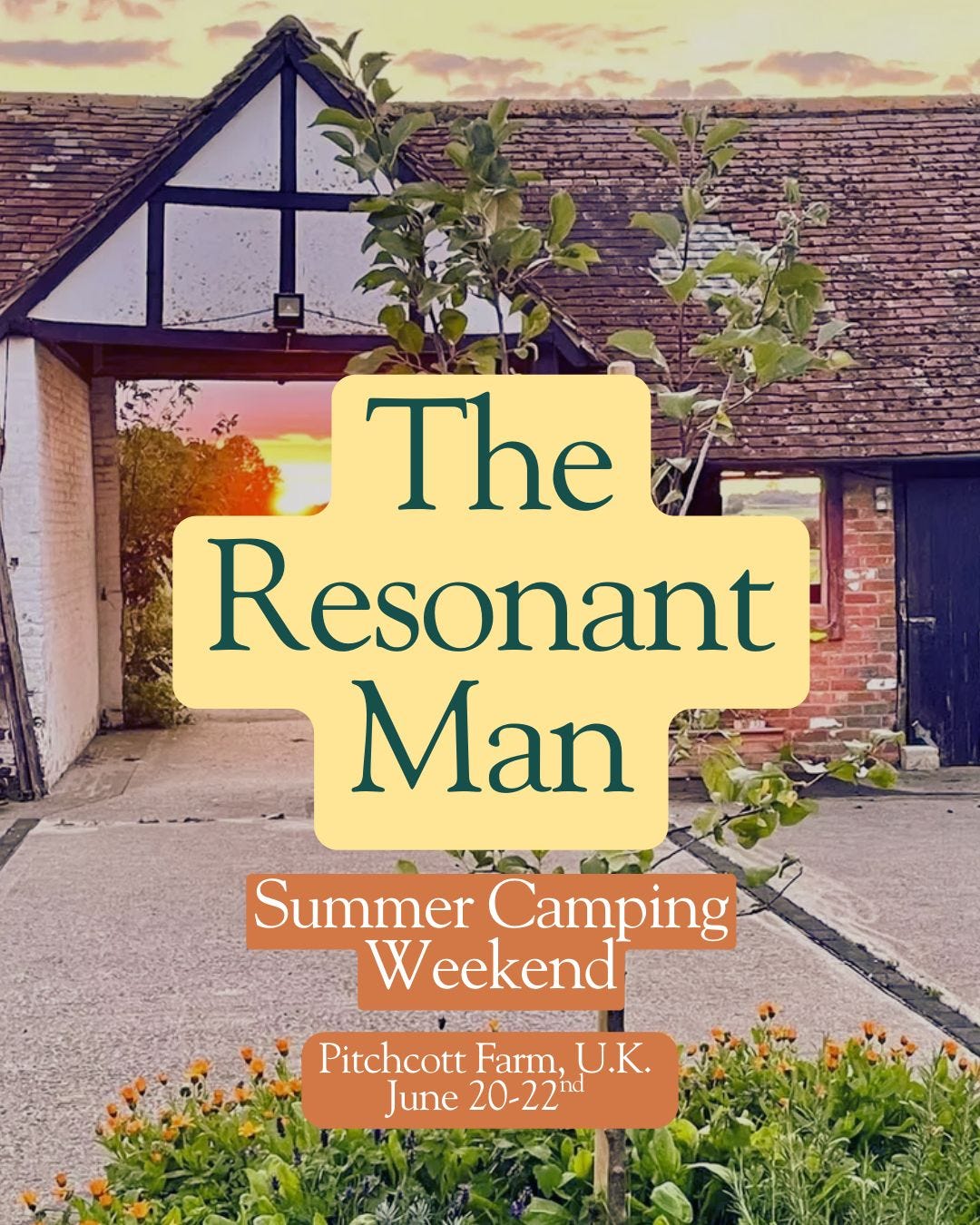The Sacredness of the Word │Lori Shridhare
And healing the wounds of colonialism, with Laura Caldéron de la Barca.
Thank you for visiting Resonant World.
Resonant World #146
Hello Resonant Readers,
I wanted to share the two newest episodes in the What is Collective Healing? podcast, and also a reminder that we have capacity to welcome more men to the Resonant Man Summer Weekend taking place at Pitchcott Farm in Buckinghamshire on June 20-22. Let me know if you might be up for it, or fill in this form to register your interest. If you’re planning to come but haven’t yet secured a ticket, you can buy one here. We have a warm and welcoming group assembling and it would be great to see you there!
Episode Four: Lori Shridhare
“The sacredness of the word as a way to invite consciousness, invite the awareness of consciousness, invite our witnessing, and bring in the love that’s there.” — Lori Shridhare
In this week’s episode, I explored the relationship between collective healing and creativity with Lori Shridhare, a writer and communications director at Harvard Medical School, who turned to writing poetry after years of immersive study with collective trauma facilitator Thomas Hübl.
Throughout 2024 as the destruction of Gaza unfolded, she began to experience words and images spontaneously come through her regular writing practice — fragments of sentences that spoke of struggling voices yearning to speak. This process inspired her to write the poem Witness. Target = Rubble, published in Merrion West, which you can hear Lori read in a bonus episode of What Is Collective Healing?
Lori has been collaborating with Thomas on writing and other projects since 2018, including a recently launched blog series for Psychology Today called “Attuned: Collective Healing During Times of Crisis”. Lori lives in Arlington, Massachusetts.
Episode Three: Laura Caldéron de la Barca
“That's where I found the connection to colonialism, and that was a crucial moment for me because that allowed me to see that there was a connection between my personal experience that had collective dimensions.” — Laura Caldéron de la Barca
Exploring the enduring impact of colonialism is developing into a major theme in my process of training as a collective trauma facilitator — not least because I’m increasingly conscious that I’ve only begun to reckon with my personal and ancestral relationship to the legacy of the British Empire. That task is now a priority frontier in my development.
It was therefore very powerful to be in dialogue with Laura Caldéron de la Barca about her personal process of recognising how the collective wounds inflicted by colonisation on Mexico lived in her. Her years of work to transmute this pain, recover the wisdom it concealed, and then begin facilitating collective healing for many other countries affected by colonialism is an exemplar of the kind of transformation What is Collective Healing? aims to document.
We also touched on the seminal essay Healing Systems in Stanford Social Innovation Review that Laura co-wrote with John Kania and Katherine Milligan of the Collective Change Lab, covered in Resonant World last year. (Resonant World#69: Forward This When Words Fail).
These were two powerful episodes that palpably transmit the quality of a collective healing field. I would love to hear any resonance in the comments.
Easy Ways to Support This Work
If any of this speaks to you, then an easy way to contribute is to simply follow What Is Collective Healing? on Spotify and Apple Podcasts, and — if you feel inspired — leave a comment on the podcast pages on these platforms:
👉🏼Link to follow the podcast on Spotify
👉🏼Link to Apple Podcasts
And if you want to go further, join the Resonance Council by becoming a paid subscriber to Resonant World. This group of about 60 core supporters forms the energetic foundation of this platform. I appreciate the opportunity to share subscriber-only content from time to time, where I feel comfortable going deeper into my own process than in public posts. Please consider joining us!
If you’re a man and you enjoy What is Collective Healing? then do check out , the international men’s initiative I co-founded with . We host weekly online men’s circles, events and in-person retreats. More details at , or message me direct to set up a call.







Thank you, Matthew! You've created such a generative, nourishing space for these conversations. Such powerful topics held with gentleness and warmth. Who knew that within the field of collective healing there could be so many diverse voices and perspectives to explore? So much promise in this podcast series!
Such needed processes, the collective healing. Thank you.
A reflection of a word - frontier.
I found it a colonial word, associated with white settlers going West on Turtle Island, spreading trauma and genocide and ecocide - but in a narrative of success. That's how terms like frontier, explore, conquer, dominate, civilize, clear the land are used in the mainstream colonial language, that bleeds into metaphors in psychology etc.
With an integration lense, a loving witness, welcoming all parts, how could you state your intention and growing edge?
"I’ve only begun to reckon with my personal and ancestral relationship to the legacy of the British Empire. That task is now a priority frontier in my development."
In my journey in relating to my heritage, some good guides are Vanessa Andreotti, Peggy Eyers and Daniel Foor, besides Thomas. Curious how it looks for you.
A feedback on the podcast from my nervous system, the music in the trailers is too fast and loud.
Thank you for all you do. Keep doing it.